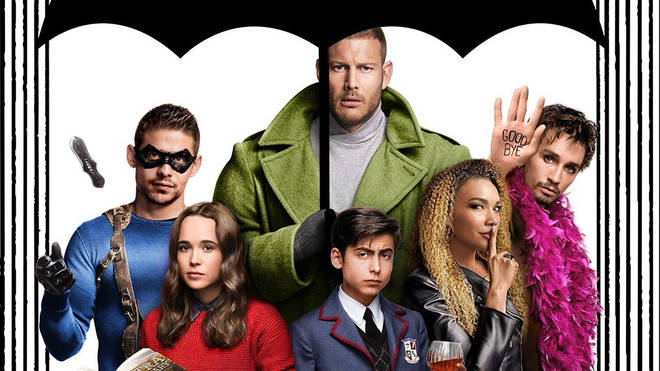“The Umbrella Academy” is a science fiction fantasy show about seven siblings (Luther, Allison, Diego, Klaus, Five, Ben and Vanya Hargreeves) born with supernatural abilities coming together to prevent the apocalypse. At the end of the first season, the Hargreeves siblings escaped a burning world by jumping back in time. The show’s second season, released on July 31, follows this extraordinary family as they dodge murder attempts and encounter prevalent societal issues, ultimately having to reunite in an unfamiliar world and come together to save it from a disaster they would eventually cause.
The show did a wonderful job encapsulating the social and political turmoil of the 1960s. Each of the Hargreeves siblings confronted a different facet of the new world they found themselves in. Luther immersed himself in mob culture, becoming a wrestler and bodyguard for Jack Ruby, a night club owner and alleged mafia affiliate. Allison found herself facing brutality and discrimination as a Black woman, and ultimately became an organizer for a local civil rights movement. Diego nearly drove himself insane trying to prevent the assassination of President John F. Kennedy. Klaus, who ended up starting a hippie cult, and Vanya, who came under suspicion for her Russian name, were both victims of homophobia, directed towards them by the “traditional” members of society.
I appreciated how the show addressed each of these threads and was able to tie them all together through the lives of the siblings. I have found that in other series and movies that are set in the 1960s, they tend to focus on only one of these social or political issues — and even when I find myself thinking of that decade, I do the same. I don’t think I had ever officially processed the fact that hippie culture, the Cold War and the Civil Rights movement coexisted and even interacted with each other — but the show was able to encapsulate the dynamic culture of the decade.
Beyond politics, the show brought to life a colorful concept of Dallas, Texas, in 1963 through impressive set design and costuming. The town featured everything from a barbershop to a jazz club, each with time-appropriate layouts and decorations. The women were outfitted in the decade’s quintessential shift dresses, their hair piled high in beehives or curled up into a flipped bob. The men wore suits and incredibly high-waisted pants that were just loose enough for pleats, their hair slicked back stylishly. These design aspects painted a clear picture of the world that made the show all the more engaging.
[Spoiler alert]
While I appreciated the themes and sets used in the show, I felt that the plot took far too many turns in a bid to keep the viewers’ attention, some of which seemed to go against the previously established “rules” of the universe. For example, new characters were introduced with powers, when initially it had been stated that there were only seven super-beings. Some characters, like Vanya and Ben, received new powers that they had never displayed before: resurrection and horror movie-esque possession, respectively. Nearly every episode introduced a new twist or detail about a character, some of which weren’t even relevant. For example, the Hargreeveses’ adoptive father was revealed to be a murderous alien, but this detail was never explained or returned to. At some points in the show, I found myself deeply confused by all the different twists and turns that were being introduced — some verged on nonsensical.
And of course, in true “Umbrella Academy” fashion, the show ended on a cliffhanger. The Hargreeveses’ ultimate restoration of the timeline ended up altering the future, meaning that their childhood never happened. Instead of the Umbrella Academy, in which they had grown up, there was the Sparrow Academy, a group of entirely different children with supernatural abilities. Just like that, the show set itself up for a third season.
Would I watch the show again? Absolutely. Even though I found that there were many unnecessary or confusing details, the universe that the show created was incredibly imaginative. I am excited to see if the show gets renewed for a third season; I have no doubt that the story of the Sparrow Academy will be just as compelling.
Contact Prithi Srinivasan at 22psrinivasan ‘at’ pinewood.edu.
